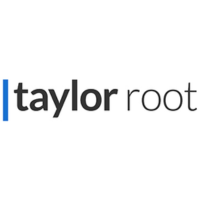
Chief legal officer | Air Liquide




Majdoleen Aboudi
Chief legal officer | Air Liquide
Could you share an example of a time when you came up with an innovation that improved how your legal team works and did not come at a large expense?
The game now is about doing more with less; being proactive and looking around corners for opportunities to improve operations at little to no cost. Hence the Customer Contract Validation Tool (CCVT) was launched in January 2022. This was the product of an internal collaborative effort between the in-house legal and IT teams which came at no additional cost. The CCVT is designed as a simplified workflow to capture the contract lifecycle from creation, signing and archiving. The tool has been successfully launched in Egypt and India and will be launched in Africa soon. It has reduced time wasted on manual reviews, capturing the process, and created a great contract repository. Furthermore, headquarters is looking into the possibility of using this tool globally.
How do you balance your responsibilities as a GC with your involvement in dispute resolution and M&A matters?
Divide and conquer; in my world, it all boils down to people and building the right team where each can work individually but synergistically with the rest of the team and other areas. When I joined Air Liquide, the Middle East and India legal department had lost its general counsel and two senior counsel. There was not a lot of memorised knowledge which made my start difficult, but full of opportunities. There was not a wealth of knowledge readily available, which made my start a bumpy one, but it was also filled with opportunities.
This gave birth to the idea of creating a Legal Centers of Excellence (CoEs) with the aim of improving legal service delivery, standardising processes, promoting knowledge sharing, and fostering innovation. This marked a stepping stone towards implementing effective communication and collaboration channels among team members and various stakeholders. It also involved the exploring and leveraging legal technology solutions to improve operational efficiency and facilitate innovation within the CoE. Furthermore, in addition with securing the right external counsel, this helped me to efficiently navigate various responsibilities and tasks, including overseeing M&A activities and different litigations across multiple jurisdictions.
Can you foresee any key developments to the way general counsel work over the next five years?
Absolutely! With the emergence of artificial intelligence, the legal profession and the role of general counsel will see significant change influenced by technological advances, which will lead to changes in the roles, responsibilities and skill sets required of general counsel. For example, the use of artificial intelligence and machine learning will enable general counsels to automate repetitive tasks such as reviewing contracts, legal research, and due diligence, thus freeing up time to do more complex and strategic work. This will require general counsel to have a strong understanding of artificial intelligence and data analytics, as well as the ability to work collaboratively with technology experts.
Additionally, as companies become more global, general counsel will need a broader understanding of international law and cross-border regulations. This may include advising on international trade agreements, managing disputes in foreign jurisdictions, and ensuring compliance with international data privacy laws. Another angle is the growing importance of environmental, social and governance (ESG) issues which requires general counsel to have a strong understanding of sustainability issues as well as the ability to advise on ESG risk management strategies.
Finally, general counsel, more than ever, will need to be effective communicators and business partners able to work collaboratively with other stakeholders such as the board of directors, senior executives, and external legal counsel. This in my view, requires the general counsel to enhance their toolkit through deeper study of emotional intelligence by educating themselves further on the sciences available now such as NLP and executive coaching, among others. Being an IPEC Trainer and Certified NLP Trainer, I know how much my education has helped me overcome difficult scenarios to ensure a win/win outcome.
How do you prioritise diversity and inclusion within your legal department, and what initiatives have you implemented to foster a more inclusive and equitable work environment?
This is an area very close to my heart. As soon as a I landed my job at Air Liquide, I pioneered and launched WIN – Woman Inspirational Network, working with HR and our CFO at the time. In short, WIN is a forum to empower women and help them thrive in their careers. The purpose is to ensure that high-potential women are channelled into leadership roles and to ensure increased influence led by these women within the AMEI Hub. WIN also aims to create a community of women in leadership locally and globally to share experiences and best practices.
As such, WIN now provides a platform for high-potential women to receive mentoring and support from senior members within the hub. We also implemented talent development strategies focused on developing talented women into leadership roles within the organisation and promoting a culture of diversity and inclusion.
Furthermore, we developed an engagement agenda showcasing success stories of women in leadership internally and externally. Finally, we have reviewed and redesigned policies in line with our WIN agenda that better promote employee well-being and diversity. We have discussed unconscious bias and imposter syndrome in multiple forums, and we continue to challenge programs that undermine individual abilities to reach their full potential.
Chief legal officer | Air Liquide
Chief legal officer - Africa, India and Middle East | Air Liquide